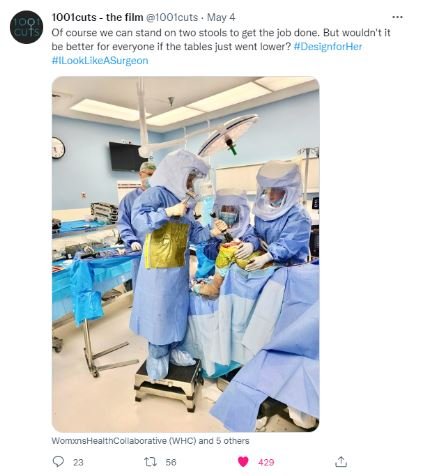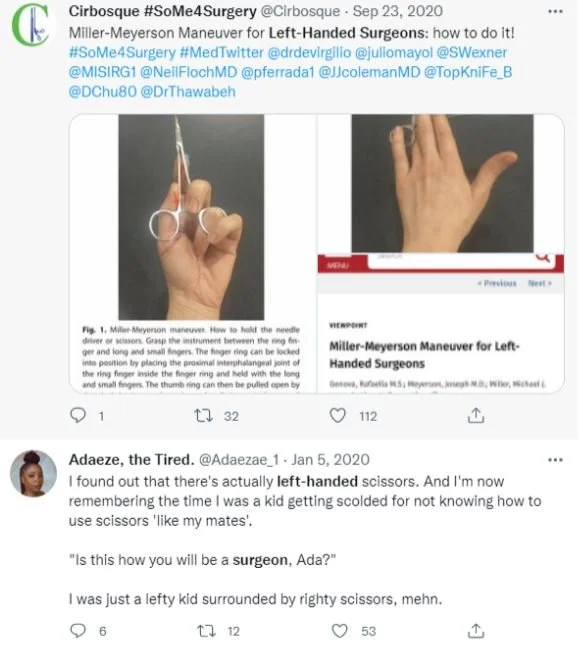So many things in healthcare were designed when the workforce was far less diverse…
So many things in healthcare were designed when the work force was far less diverse.
In the past, we have expected everyone else to just adapt to one “right” way. But are they really that hard to change if we put our minds to it?
@1001cuts is wondering why the OR table can’t go any lower.
I know tables that can go up high enough to be comfortable for surgeons who are 7 ft tall but have yet to see one that can go low enough to make surgeons 5’2’’ comfortable
2. @Adaezae_1 is wondering why we cannot just purchase instruments designed for left-handed surgeons?
The Miller-Meyerson maneuver is clever, but do you really want to hold scissors that way for the rest of your life because you’re left-handed?
3. @JMSoegaard is wondering why we never seem to be able to find XS gloves even though so many providers would benefit from them today.
How often do we just suck it up and wear gloves that do not fit well and make it harder to do procedures?
4. @TsengJennifer is wondering why we don’t have surgical instruments that fit different hand sizes.
There is probably a very simple manufacturing solution to this that would help so many surgeons feel more comfortable every day.
5. @g_lighthall is wondering why scrubs have to remain so dysfunctional and poorly fitting for providers of different body types (although those suspenders are super fashionable!)
What other examples of functional biases and outdatedness do we live with on a daily basis?
________________________________________________________________________________________________________________________________________________________________________
Jason J. Han (@JasonHanMD) is a cardiac surgery resident in Philadelphia and is part of the TMS leadership.
Want to read more articles like this? Sign up for the TMS newsletter to be notified of our latest content, including videos!
The opinions expressed in the article is not affiliated with any institution, company or product. The article should not be interpreted as medical advice.





